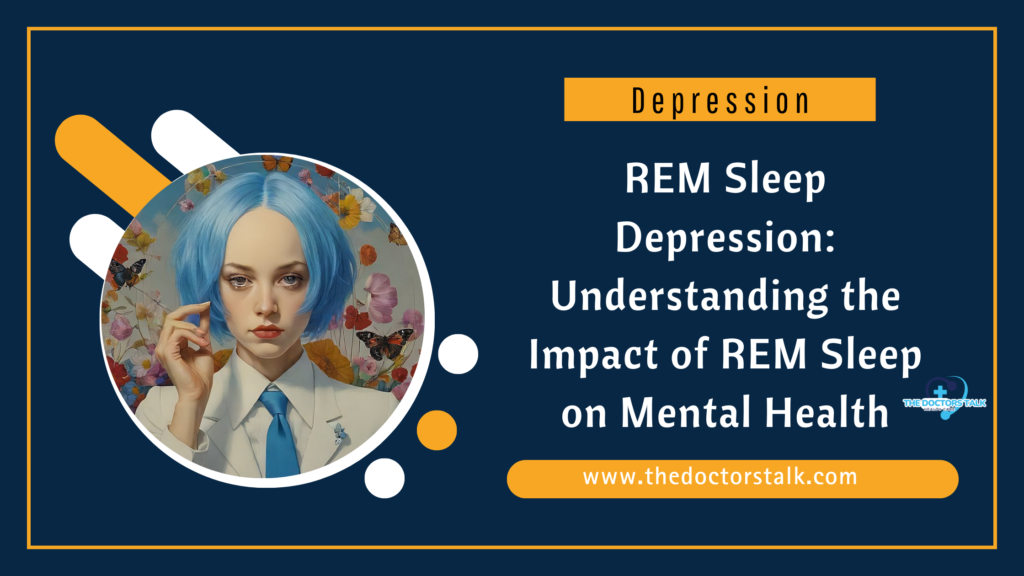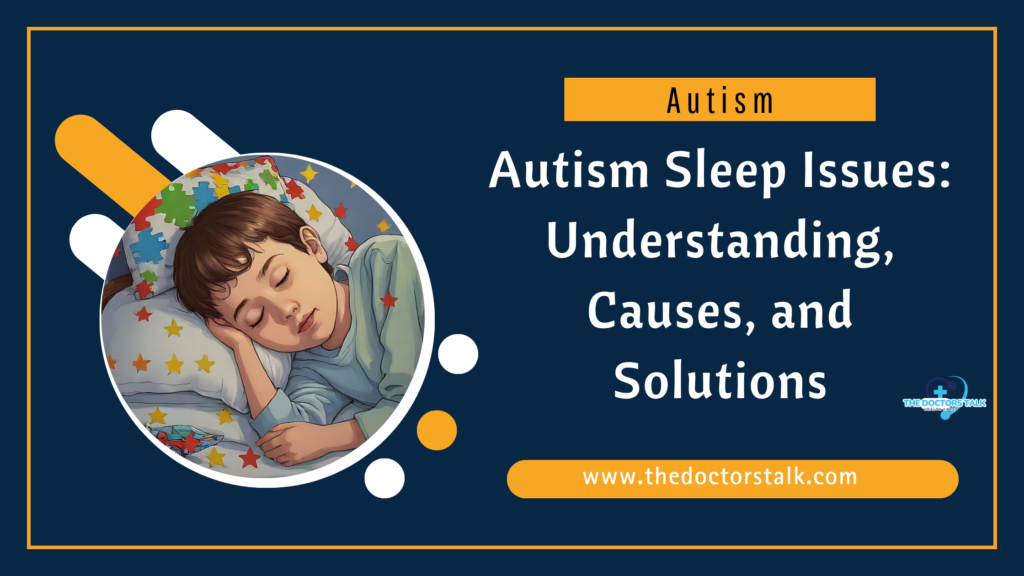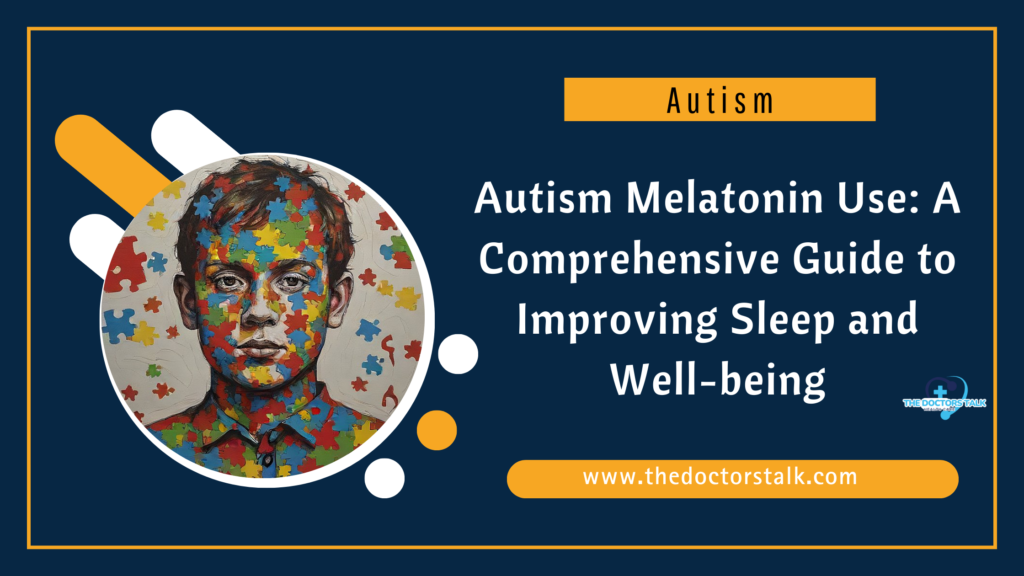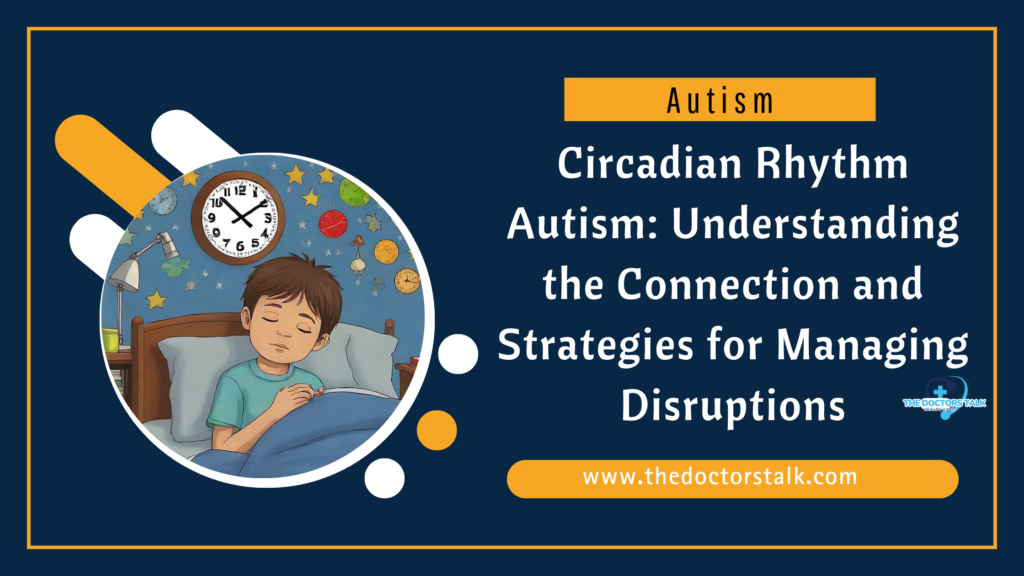Table of Contents
Introduction
Sleep is an essential pillar of mental and physical health. It is often said that a good night’s sleep is one of the best remedies for a long day, and this saying holds truth, especially when considering the profound effects sleep has on emotional and cognitive functioning. While most people understand that sleep is critical for overall well-being, many fail to realize the significance of REM (Rapid Eye Movement) sleep. The stages of sleep are categorized into non-REM sleep and REM sleep, each playing a unique role in the body’s restoration and maintenance. Among these, REM sleep stands out as an essential stage for emotional regulation, memory consolidation, and overall mental clarity.

When it comes to mental health, disruptions in REM sleep can have serious consequences. This disruption can lead to a condition often referred to as “REM sleep depression,” which describes the relationship between REM sleep disturbances and the onset or exacerbation of depression. This article aims to explore the concept of REM sleep depression, how it affects mental health, and practical ways to address this issue.
What is REM Sleep?
REM sleep is one of the most fascinating phases of the sleep cycle. It is characterized by rapid eye movement, increased brain activity, and vivid dreaming. REM sleep typically occurs in cycles throughout the night, with each cycle lasting between 90 and 120 minutes. A full sleep cycle progresses through non-REM stages, followed by REM sleep, and this process repeats itself several times during a night of sleep.
During REM sleep, the brain is highly active, yet the body remains paralyzed to prevent us from acting out our dreams. This stage of sleep is critical for several vital functions, including memory consolidation, emotional processing, and learning. It is also during REM sleep that the brain processes and regulates emotions. The importance of REM sleep in mood regulation cannot be overstated; it helps to restore mental balance, improve emotional resilience, and process memories, particularly those linked to emotional experiences.
Typically, REM sleep accounts for about 20-25% of total sleep time in adults. As the night progresses, REM stages become longer, with the most extended periods occurring in the later part of the night. A full night of sleep with sufficient REM sleep is essential for both cognitive function and emotional health. However, disruptions in REM sleep can have a profound effect on an individual’s emotional state and mental health.
The Link Between REM Sleep and Depression
The connection between sleep and depression is well-documented, and one of the most notable links is the disruption of REM sleep. Studies have shown that individuals suffering from depression often experience alterations in their sleep patterns, with a significant impact on the REM phase. This connection between REM sleep and depression is a two-way street, as poor REM sleep can contribute to depressive symptoms, and depression can lead to REM sleep disturbances.
One of the key functions of REM sleep is emotional regulation. During this stage, the brain processes emotional experiences and helps store them in long-term memory. It is essential for managing and processing feelings of anxiety, sadness, and stress. Without adequate REM sleep, emotional regulation becomes impaired, leading to heightened feelings of anxiety, irritability, and stress. The failure to adequately process emotions during sleep may result in individuals experiencing more intense feelings of depression when they are awake.
Additionally, neurotransmitters such as serotonin and dopamine, which play a key role in mood regulation, are regulated during REM sleep. Sleep deprivation or disruption in REM sleep can lead to an imbalance in these neurotransmitters, increasing the risk of depression. Furthermore, the hormone cortisol, which is associated with stress, tends to be elevated in individuals who are not getting enough REM sleep. Elevated cortisol levels can contribute to feelings of stress and anxiety, further exacerbating symptoms of depression.
Research indicates that REM sleep is not just critical for mood regulation but also for cognitive processes like decision-making and problem-solving. Poor REM sleep can impair cognitive function, leading to feelings of confusion, irritability, and difficulty concentrating, all of which are symptoms commonly associated with depression. This vicious cycle of poor sleep contributing to depression and depression worsening sleep disturbances makes addressing REM sleep depression a crucial part of managing mental health.
Check Out: Sleep Hygiene Depression: Understanding the Connection and How to Improve Your Well-being.
How REM Sleep Disruptions Contribute to Depression?

When REM sleep is disrupted, it can lead to a range of symptoms associated with depression. One of the most significant consequences of reduced or fragmented REM sleep is emotional instability. As REM sleep plays an essential role in processing emotions and memories, disrupted sleep can result in an inability to regulate feelings of sadness, anger, or frustration. This inability to manage emotions can contribute to a heightened sense of depression, anxiety, and stress.
People suffering from depression often experience disrupted sleep patterns, with REM sleep taking the biggest hit. Those with depression may find themselves waking up frequently during the night or experiencing disturbed REM sleep, which prevents them from entering the deeper stages of this restorative phase. As a result, they may experience persistent feelings of fatigue, irritability, and low energy throughout the day, all of which can worsen depressive symptoms.
The cycle of depression and disrupted REM sleep is a self-perpetuating one. Lack of REM sleep leads to emotional instability and poor mood regulation, which then worsens the symptoms of depression. In turn, the persistence of depression contributes to further sleep disturbances, making it increasingly difficult to break the cycle.
In severe cases, chronic REM sleep disruptions may lead to a condition called sleep-related depression, where the individual’s mood and mental health are primarily affected by the quality of their sleep. In such cases, addressing the underlying issues with sleep can be a critical part of improving the individual’s overall mental health.
Symptoms of REM Sleep Depression
Individuals with REM sleep depression may experience several signs and symptoms. These symptoms are often related to both the disrupted sleep itself and the emotional consequences of poor REM sleep. Common signs of REM sleep depression include:
- Mood Swings and Irritability: Individuals may find themselves more easily frustrated, anxious, or sad due to the inability to regulate emotions during disrupted REM sleep.
- Anxiety and Stress: Increased levels of anxiety and stress are often linked to insufficient REM sleep, as emotional processing is hindered during this critical sleep phase.
- Fatigue and Low Energy: Fragmented REM sleep leads to a feeling of tiredness even after a full night’s sleep. The individual may feel drained, which can contribute to feelings of hopelessness or lack of motivation.
- Cognitive Impairments: Difficulty concentrating, making decisions, or remembering things may occur when REM sleep is insufficient. This cognitive fog can worsen depression and create feelings of confusion.
- Frequent Awakenings and Nightmares: People with REM sleep disturbances often wake up multiple times during the night, especially during REM sleep stages, and may experience vivid dreams or nightmares that contribute to feelings of anxiety.
The symptoms of REM sleep depression are often similar to the typical symptoms of depression, making it difficult for individuals to identify the root cause of their distress. However, understanding that REM sleep disturbances are a significant contributor to depressive symptoms can help individuals take steps to improve their sleep quality and overall mental health.
Improving REM Sleep to Combat Depression

Improving REM sleep can significantly alleviate the symptoms of depression and help break the cycle of poor sleep and emotional instability. There are several practical steps individuals can take to improve their REM sleep and overall sleep quality:
- Establish a Consistent Sleep Schedule: Going to bed and waking up at the same time every day helps regulate the body’s internal clock, making it easier to enter the REM stage. Consistency is key in improving the overall quality of sleep.
- Create a Relaxing Sleep Environment: A calm, quiet, and dark bedroom is conducive to deep sleep. Ensure that the sleep environment is free from distractions like noise, light, or electronic devices that can interfere with sleep.
- Practice Relaxation Techniques: Relaxation methods such as deep breathing, progressive muscle relaxation, or meditation before bed can help reduce stress and anxiety, making it easier to fall into REM sleep.
- Avoid Stimulants: Reducing caffeine, nicotine, or alcohol intake in the hours before bedtime can prevent disruptions to sleep and ensure better REM sleep quality.
- Address Underlying Sleep Disorders: Conditions like sleep apnea or insomnia can disrupt REM sleep. Treating these underlying disorders can help restore healthy sleep patterns and improve mental health.
- Limit Screen Time Before Bed: Exposure to blue light from screens inhibits melatonin production, making it harder to fall asleep. Limiting screen time at least an hour before bed can promote better sleep.
- Engage in Regular Physical Activity: Regular exercise helps improve sleep quality and reduces anxiety. However, it’s important not to engage in vigorous physical activity too close to bedtime, as it may have the opposite effect.
When to Seek Professional Help?
While improving sleep hygiene can have a significant positive impact on REM sleep depression, professional help may be necessary for individuals experiencing chronic sleep disturbances. If an individual finds that they are still struggling with disrupted REM sleep despite implementing these strategies, it may be time to seek professional help. A healthcare provider can assess the situation and recommend appropriate treatments.
Treatment options may include:
- Cognitive Behavioral Therapy for Insomnia (CBT-I): A structured program aimed at improving sleep habits and addressing thoughts and behaviors that contribute to poor sleep.
- Medication: In some cases, medication may be prescribed to treat depression, anxiety, or sleep disorders. Antidepressants or sleep aids may help restore healthy sleep patterns.
- Sleep Studies: If sleep apnea or other sleep disorders are suspected, a sleep study may be recommended to diagnose and treat these conditions.
Conclusion
The relationship between REM sleep and depression is a complex one. Disrupted or insufficient REM sleep can contribute significantly to the onset and severity of depressive symptoms. Addressing REM sleep depression is crucial for improving overall mental health and breaking the cycle of poor sleep and emotional instability. By implementing better sleep habits and seeking professional help when necessary, individuals can improve their REM sleep and alleviate depressive symptoms, leading to better mental and physical well-being.
For more info : Click Here.
FAQs
What causes REM sleep depression?
REM sleep depression can be caused by factors such as stress, anxiety, and sleep disorders, which disrupt the normal sleep cycle and prevent adequate REM sleep.
How can I improve REM sleep if I’m experiencing depression?
Establishing a regular sleep routine, practicing relaxation techniques, and creating an optimal sleep environment can help improve REM sleep and alleviate symptoms of depression.
Can REM sleep depression be treated without medication?
Yes, REM sleep depression can often be managed without medication through lifestyle changes, including improved sleep hygiene, stress management, and therapy. However, in more severe cases, medication may be necessary.





